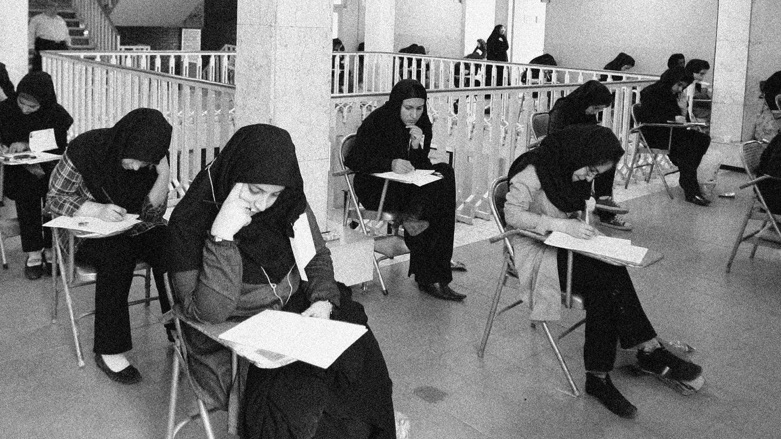US denounces poisoning of Iranian school girls; reaffirms nuclear deal not on the agenda

WASHINGTON DC, United States (Kurdistan 24) – Both the White House and State Department on Monday expressed strong condemnation of the mysterious poisoning of Iranian school girls, which has been ongoing since last November.
The U.S. condemnation followed a televised statement from Iran’s Supreme Leader, Ayatollah Ali Khamenei, on Monday, where he described the poisoning as an “unforgivable crime,” and if proven “deliberate,” those responsible “should be sentenced to capital punishment."
In addition, State Department Spokesperson Ned Price affirmed, as he has for some time, that the renewal of the 2015 Iranian nuclear deal, formally known as the Joint Comprehensive Plan of Action (JCPOA), was not on the U.S. agenda, despite apparent Iranian concessions to improve monitoring by the International Atomic Energy Agency (IAEA.)
Poisoning of the Schoolgirls
The first incident occurred on Nov. 30 in the Iranian shrine city of Qom, when 18 students were reportedly poisoned. A month later, following a second attack, 51 students were hospitalized.
“Since late January,” The Wall Street Journal reported, “the frequency of incidents has picked up, with 26 schools affected, including in the capital, Tehran, the majority Kurdish city of Kermanshah, as well as the cities of Borujerd and Isfahan.
With the increase in such attacks, popular anger against the government for its failure to protect the children has risen. Some even suspect the regime has been turning a blind eye to the attacks, because of the protests, triggered by the death in police custody last September of the young Kurdish woman, Zina (Mahsa) Amini, for supposedly not properly covering her hair.
Women have played a prominent role in the widespread protests. Indeed, on Wednesday, which marks International Women’s Day, the White House will host the International Women of Courage Awards ceremony. Among those recognized are “the Women and Girl Protestors of Iran,” according to a State Department announcement.
U.S. Response
At the White House, Spokesperson Karine Jean-Pierre described it as a “deeply concerning situation,” characterizing “the continued poisoning of schoolgirls across Iran” as “unconscionable.”
Jean-Pierre called for “a credible, independent investigation” and “accountability for those responsible.”
“If these poisonings are related to participation in protest, then it is well within the mandate of the U.N.’s independent, international fact-finding mission on Iran to investigate,” she stressed.
At the State Department, Ned Price similarly denounced “these reports of continued poisoning of schoolgirls” as “unconscionable.”
“These poisonings need to be stopped immediately,” he affirmed. “Women and girls in Iran” have “a universal human right” to education.
Like Jean-Pierre, he called for an independent U.N. investigation to uncover what had happened and hold accountable those responsible.
Price: “JCPOA is Not on the Agenda”
On Friday and Saturday, the head of the IAEA, Rafael Grossi, visited Tehran. Afterwards, he indicated that his visit had secured a major breakthrough, reversing months of Iranian stonewalling, going back to last fall.
On Saturday, returning to the IAEA’s Vienna headquarters, Grossi gave journalists an upbeat assessment of the results of his trip. He claimed that Iran would allow the IAEA to question individuals about key, unresolved issues related to Iran’s nuclear activity and that Iran would allow the re-installation of monitoring equipment, which it had removed last year.
Soon after Grossi’s statement, however, the spokesperson for Iran’s Atomic Energy Organization denied the assessment, saying no such agreement had been reached.
Asked about the results of Grossi’s visit to Tehran, Price’s attitude was essentially that Iran had to demonstrate its commitment through actions and not just words.
“Too many times in the past,” Price said, “we’ve seen Iran issue vague promises, only never to follow through.”
“We and the IAEA Board of Governors have been clear that Iran must cooperate with the IAEA fully and without delay,” Price stated, “and we look forward to additional reporting from the IAEA in the coming weeks on the steps taken by Iran.”
Price was also asked about a statement from Iran’s Foreign Ministry claiming that Tehran was still exchanging messages with Washington about reviving the nuclear deal.
Price replied clearly and unequivocally, repeating language he has used since December: “the JCPOA is not on the agenda.”
Rather, as Price stated, the US is focused on three issues in regard to Iran: 1) its repression of its own population; 2) its provision of armed drones to Russia; and 3) its wrongful detention of US citizens.
